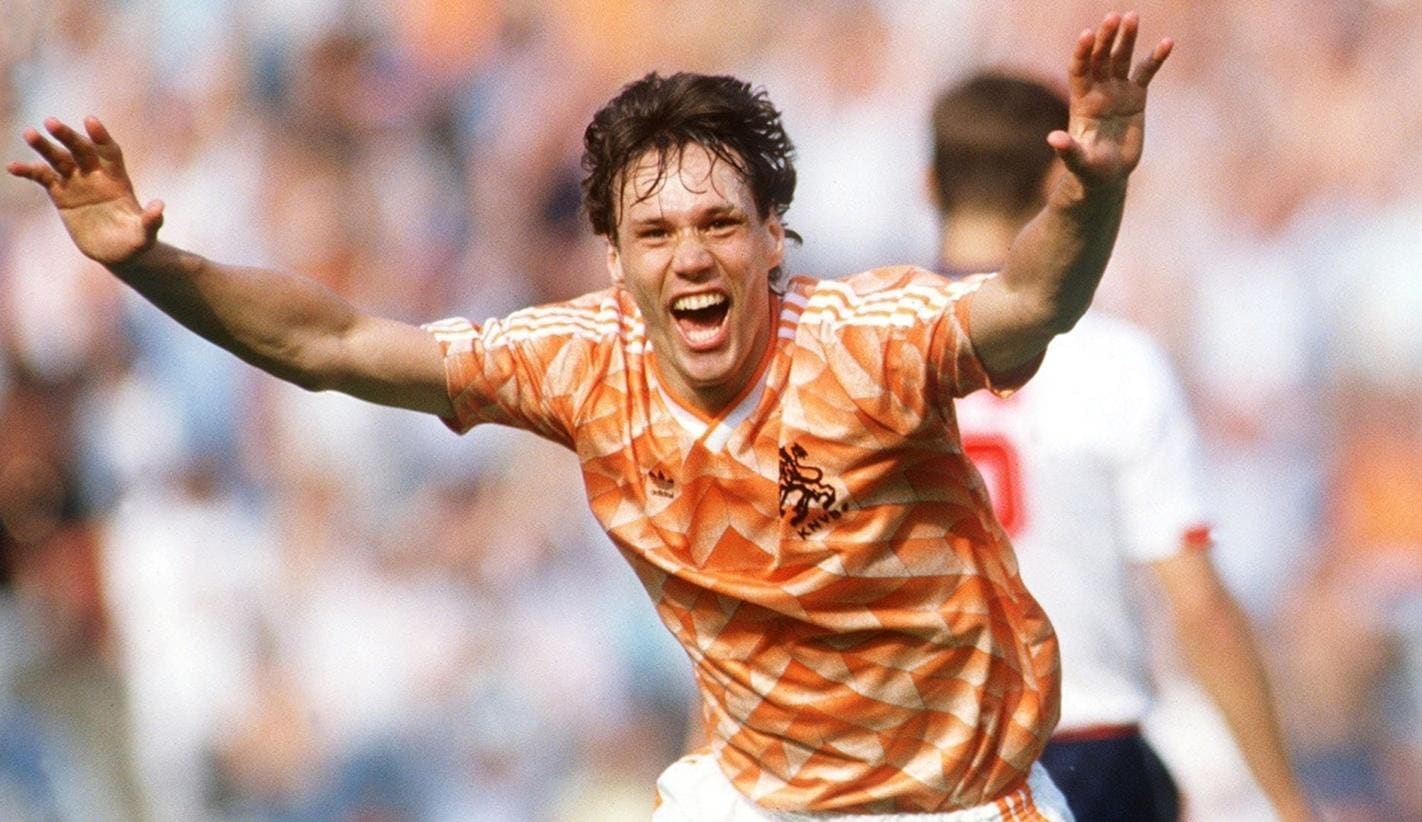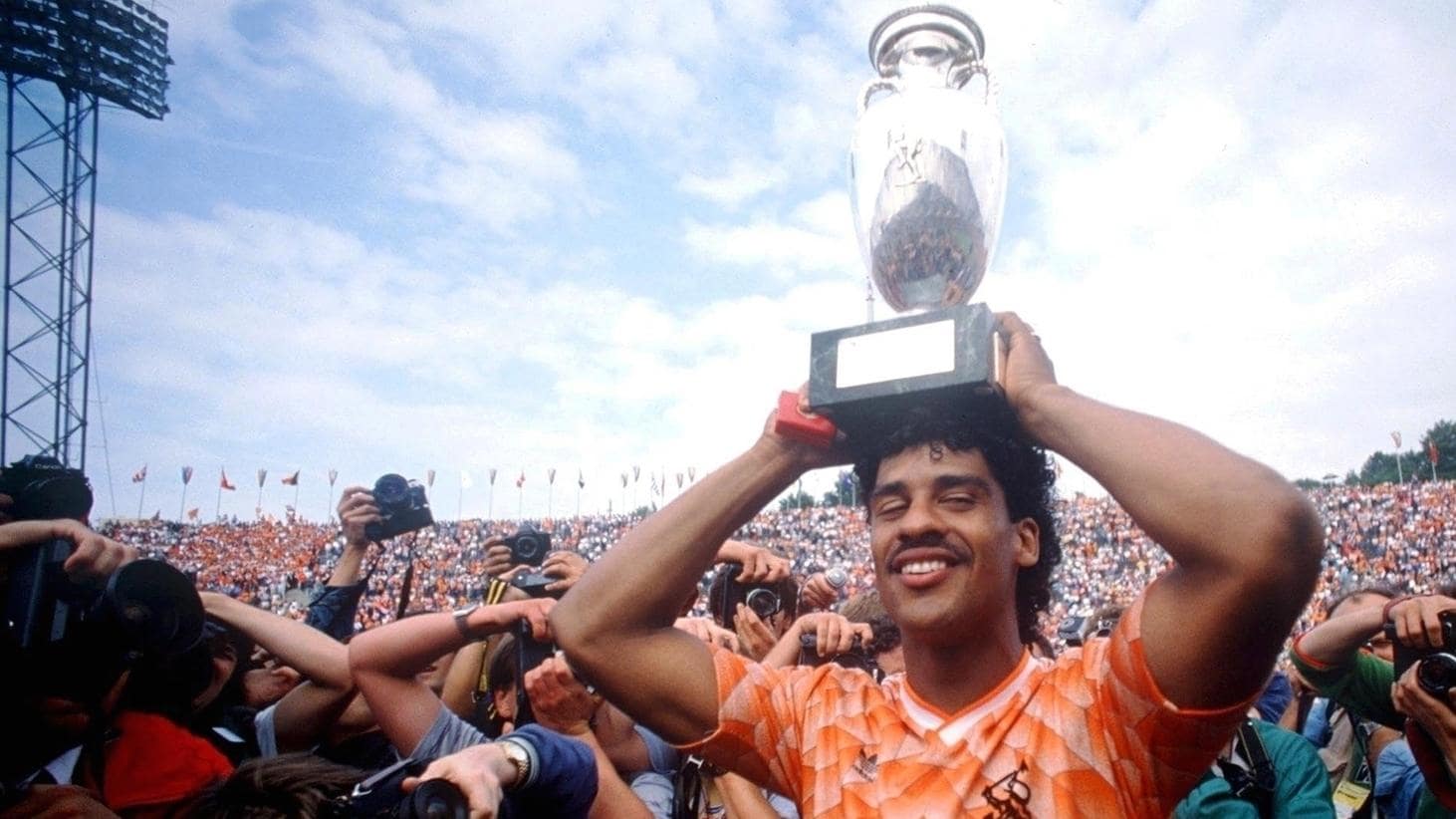Euro '88 is harder to place than most tournaments.
For many, it lacked true drama. No red cards, no penalty shootouts, no chaotic late twists. It didn’t have the high-stakes frenzy of Italia ‘90 or the raw narrative tension of France ‘98. But maybe that’s what makes it stand out. In a tournament defined by its restraint, its most lasting moments came from grace, not grit.
If Mexico ‘86 taught us anything, it’s that while some teams chase the ball, others chase something bigger - history, beauty, a place in memory. Euro ‘88 was that kind of tournament. Tidy, sun-drenched, and ultimately etched into football folklore not for wild endings, but for a few players and one nation finally stepping into their moment.
The Dutch arrived as they often do: beautifully flawed, perennially hyped, and forever close. They carried decades of almosts - the aching near-misses of ‘74 and ‘78, the lingering shadow of Johan Cruyff, the weight of Total Football’s legacy. For all the genius they’d produced, they had nothing to show for it on the international stage. But in 1988, something shifted. The Oranje grew into their myth. They began to believe.
England, by contrast, limped through the tournament in their baggy kits and bad haircuts. Tony Adams getting twisted inside out by Marco van Basten became the enduring image of their campaign. Adams later recalled drowning his sorrows with the squad during an especially heavy night out, only to be woken by a hotel maid the next morning holding her nose and saying, “pee pee.” England had quite literally wet the bed - twice in 24 hours. That the BBC didn’t even bother to televise their final group game tells you how bleak it got.

But Euro ‘88 wasn’t about England’s failures. It was about the Dutch writing something beautiful. Ruud Gullit was the muscle and the mane. Frank Rijkaard, all composure and bite. Ronald Koeman pinged passes and crunched ankles with equal ease. And then there was Marco van Basten - a striker who, for a moment, seemed to play not within the game but slightly above it.
Van Basten’s hat-trick against England was sublime, but his volley in the final against the USSR defied belief. It wasn’t a goal so much as a remembered dream- hit first-time from an impossible angle, with the kind of balletic balance and technique that makes you question the laws of physics. Even now, it looks like something that should have gone over the bar, into the stands, or off the advertising hoardings. Instead, it dropped like a gift from the gods, sealing the win and his legend.
For the Dutch, that summer became their defining sporting moment. In a nation that had given so much to the game - tactically, culturally, stylistically - it was a long overdue reward. It was justice, romance, and catharsis rolled into one. No one needed to mention Total Football anymore. The players in orange had become their own story.

And maybe that’s why Euro ‘88 still matters. It didn’t need penalties or red cards. It didn’t need chaos. It needed a team coming good, finally. It needed a goal that froze time. It needed Van Basten stretching out a leg and changing what was possible. It was clean, it was elegant, and it was short - a tight eight-team format, no filler. Every game had weight.
It’s easy to overlook a tournament like that now, in an era of bloated formats and 48-team finals. But maybe Euro ‘88 is exactly what football should be: a few great teams, a few unforgettable moments, and one perfect goal to tie it all together.
What more could you want from a tournament?
Words by Lee Kelleher
We also think you'll like...